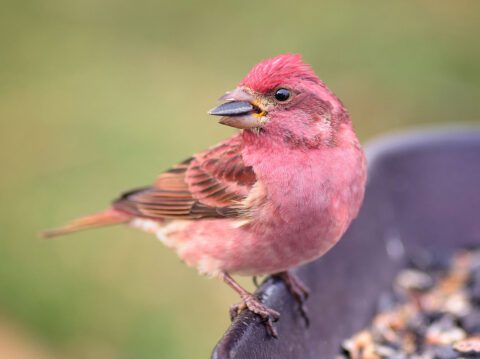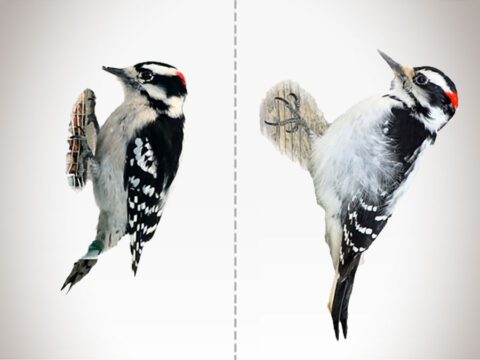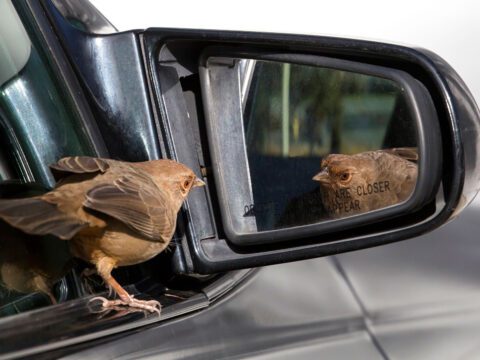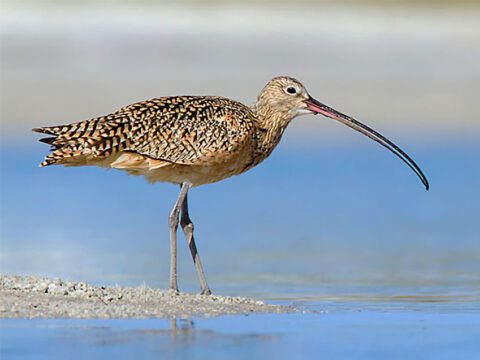New Young Birders Network Centralizes Resources for High-School Birders
By Hope Batcheller, Cornell '14, a founding member of the Young Birders Network December 17, 2012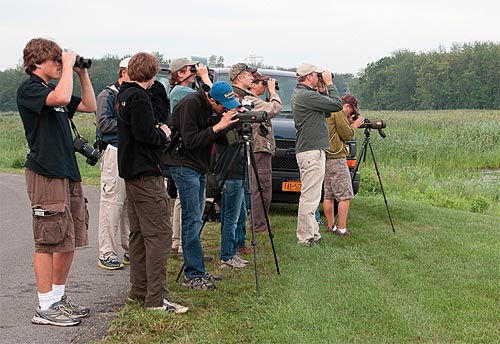
The Cornell Lab of Ornithology and Black Swamp Bird Observatory are excited to introduce the Young Birders Network. This new website offers a wealth of resources geared toward birders of high-school age. This site enables young birders to connect with peers, find clubs in their area, discover conferences and events, and find information on colleges and careers related to birds. And because the site is housed on the eBird website, students can easily track their sightings and keep updated on events via a single convenient website.
Over the past few years, the growing young birders movement has gained support in the form of local young birders clubs founded by motivated organizations in several states. These clubs offer opportunities for teenage birders to learn and bird together, and have greatly strengthened the community among high school aged birders. As more clubs form and more events for young birders appear, the need for a central information hub has grown; the Young Birders Network aims to fill that role.
Some teenage birders go on to pursue ornithology or conservation biology as a career. The Young Birders Network provides ideas for transitioning a hobby of birding into a meaningful career. Since young birders represent a variety of interests and talents, the site addresses an assortment of career options ranging from biology to art to computer science. The site’s sections on colleges, undergraduate majors, and careers contain information on incorporating any of these interests into a career related to birds and conservation.
Additionally, the site helps young birders to locate networking opportunities. There are links to active Facebook groups, as well as to young birders’ blogs from across the world. There is also a complete listing of camps, conferences, and other events available at the national level. Finally, the site contains a comprehensive list of local young birders clubs across the country.
Though the listing of young birders clubs is all-inclusive, many regions still lack any such organizations. This leaves ample room for motivated individuals and organizations to create clubs in their local area. Though many groups may be interested in doing so, they might not know how to get started. To promote club-founding efforts, the Young Birders Network features a toolkit that provides encouragement and logistical advice for starting clubs. Regardless of affiliations, most young birders clubs experience similar challenges during their early years. This document aims to ease these issues by answering common questions and concerns.
We are constantly working to improve the site, and we welcome any feedback or suggestions that you have. If you know of additional resources that should be included, or think of questions that should be addressed, please contact us at ybnetwork@cornell.edu. If you have questions about starting a club, the Black Swamp Bird Observatory is happy to advise and support; contact youngbirdersnetwork@bsbo.org. We intend this site to be a comprehensive information source for young birders, and this is not possible without the input of knowledgeable contributors. Thank you, and please visit us at www.youngbirdersnetwork.net and on Facebook.
(This post was written by Hope Batcheller, Cornell ’14, a founding member of the Young Birders Network. Image by Jessie Barry.)

All About Birds
is a free resource
Available for everyone,
funded by donors like you
American Kestrel by Blair Dudeck / Macaulay Library

